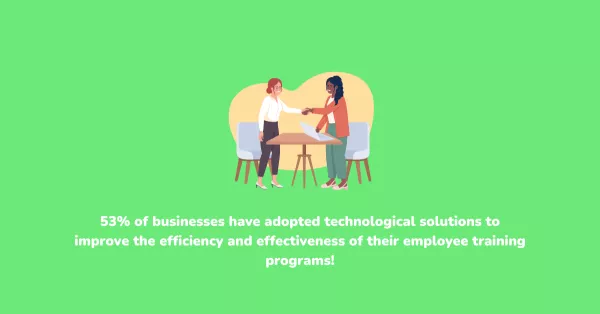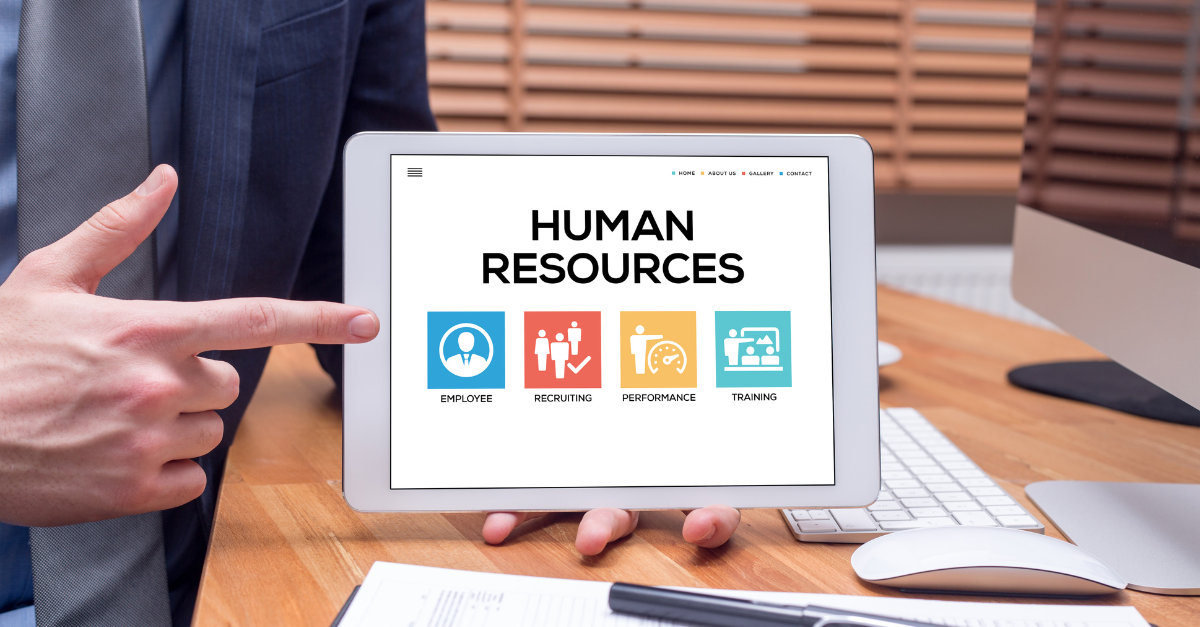Do you want to avoid traditional, outdated HR practices that are holding your company back? It's time to revolutionize your HR department and adopt modern human resource solutions or human resource management systems that will propel your organization forward.
By implementing these human resource solutions, you'll not only enhance employee productivity and satisfaction but also drive overall business success. Say goodbye to manual paperwork, inefficient processes, and administrative headaches. It's time to embrace the future of HR and unleash the full potential of your organization.
The Importance of Human Resource Management
Human capital management is a critical function that plays a pivotal role in the success of any organization. It encompasses a wide range of responsibilities, from attracting and retaining top talent to ensuring compliance with labor laws and fostering a positive work culture. In today's rapidly evolving business landscape, effective human resource management has become more crucial than ever.
At the heart of any thriving organization lies its people. Employees are the driving force behind innovation, productivity, and overall business growth. By strategically managing human resources, organizations can unlock the full potential of their workforce, leading to increased efficiency, improved employee satisfaction, and ultimately, better financial performance.
Effective human resource management not only helps organizations attract and retain the best talent, it boosts employer brand, but also ensures that employees are motivated, engaged, and aligned with the company's goals. It involves developing and implementing policies, procedures, and programs that address the needs and concerns of the workforce, from recruitment and onboarding to training, development, and performance management. By prioritizing human resource management, organizations can create a competitive advantage in the market and position themselves for long-term success.
Common Challenges in Human Resource Management
Despite the recognized importance of human resource management, many organizations still face a myriad of challenges in effectively managing their human capital. One of the most common challenges is the lack of a comprehensive and strategic approach to HR, leading to disjointed and inefficient processes.
Another significant challenge is the ever-evolving nature of the workforce and the need to adapt to changing employee expectations and preferences. Today's employees are seeking more than just a paycheck, like Gen Z; they want meaningful work, work-life balance, and opportunities for growth and development. Failing to address these evolving needs can result in high turnover, reduced productivity, and a negative impact on the organization's culture.
Additionally, the increasing complexity of labor laws, compliance requirements, and data privacy regulations can be a significant burden for HR professionals. Navigating these legal and regulatory landscapes can be time-consuming and resource-intensive, diverting attention away from strategic HR initiatives.
Furthermore, the rapid advancement of technology has transformed the way HR functions are carried out, requiring HR professionals to continuously upskill and adapt to new tools and digital solutions. Embracing these technological changes can be a challenge for organizations, especially those with limited resources or resistance to change.
To overcome these challenges and unlock the full potential of human resource management, organizations must be willing to embrace innovative solutions and strategies that address the evolving needs of the modern workforce. This is where the evolution of human resource solutions comes into play.

Evolution of Human Resource Solutions
The field of human resource management has undergone a significant transformation in recent years, driven by the rapid advancements in technology and the changing needs of the workforce. Traditional HR practices, which were often manual, siloed, and focused on administrative tasks, have given way to more strategic, integrated, and technology-driven solutions.
One of the key drivers of this evolution is the increasing adoption of cloud-based HR software and platforms. These modern HR solutions offer a centralized and streamlined approach to managing various HR functions, from recruitment and onboarding to performance management and employee benefits. By automating and digitizing these processes, organizations can reduce administrative burdens, enhance data accuracy, and improve overall efficiency.
Another significant development in the evolution of human resource software is the integration of artificial intelligence (AI) and machine learning (ML) technologies. These advanced technologies are being leveraged to automate repetitive tasks, personalize employee experiences, and make data-driven decisions. For example, AI-powered chatbots can provide instant support and guidance to employees, while ML algorithms can help identify and mitigate potential retention risks.
The rise of employee-centric HR solutions is also a noteworthy trend in the evolution of human resource management. These solutions prioritize the needs and preferences of the workforce, offering personalized experiences, self-service tools, and collaborative features that empower employees to take an active role in their own development and engagement.
Furthermore, the integration of HR solutions with other business systems, such as enterprise resource planning (ERP) and customer relationship management (CRM) platforms, has enabled organizations to achieve a more holistic and data-driven approach to human resource management. This integration allows for better alignment between HR strategies and overall business objectives, leading to more informed decision-making and improved organizational performance.
As the landscape of human resource software continues to evolve, organizations must stay attuned to these trends and be willing to embrace the latest advancements to stay competitive and meet the needs of the modern workforce.
The Role of Technology in Human Resource Management
Technology has become a driving force in the transformation of human resource management, revolutionizing the way organizations attract, manage, and engage their workforce. The integration of cutting-edge technologies has not only streamlined HR processes but also empowered HR professionals to take on a more strategic and data-driven role within the organization.
- Automation of Administrative Tasks - One of the most significant impacts of technology in HR is the automation of administrative tasks. By leveraging HR software and platforms, organizations can automate repetitive processes, such as payroll, leave management, and employee onboarding, freeing up HR teams to focus on more strategic initiatives. This increased efficiency not only reduces the risk of human error but also allows HR professionals to devote more time to activities that directly impact employee engagement and organizational performance.
- Data Analytics - The use of data analytics and business intelligence tools in HR has also become increasingly prevalent. These technologies enable HR professionals to gather, analyze, and interpret vast amounts of employee data, providing valuable insights into workforce trends, talent management, and organizational performance. Armed with these data-driven insights, HR teams can make more informed decisions, identify areas for improvement, and implement targeted initiatives to enhance the employee experience and drive business success.
- Artificial Intelligence - Furthermore, the integration of artificial intelligence (AI) and machine learning (ML) in HR has revolutionized various aspects of human resource management. AI-powered chatbots can provide instant support and guidance to employees, while ML algorithms can help identify and mitigate potential retention risks, optimize recruitment processes, and personalize employee development plans.
The rise of cloud-based HR solutions has also played a crucial role in the evolution of human resource management. These cloud-based platforms offer a centralized and accessible solution for managing HR functions, enabling organizations to streamline processes, improve data security, and provide employees with self-service tools and personalized experiences.
By embracing the power of technology, HR professionals can transform their departments from administrative hubs to strategic business partners, driving organizational growth and innovation. As the pace of technological change continues to accelerate, it is essential for organizations to stay ahead of the curve and leverage the latest HR solutions to remain competitive and meet the evolving needs of the workforce.
Key Features of Modern Human Resource Software
As the field of human resource management continues to evolve, modern HR solutions have emerged with a range of innovative features designed to address the diverse needs of organizations and their employees. These key features are transforming the way HR functions are carried out, leading to increased efficiency, improved employee engagement, and better overall business performance.
- Employee Friendly - One of the standout features of modern HR solutions is their emphasis on employee-centric design. These solutions prioritize the needs and preferences of the workforce, offering personalized experiences, self-service tools, and collaborative features that empower employees to take an active role in their own development and engagement. By catering to the individual needs of employees, organizations can foster a more positive and inclusive work culture, leading to higher levels of job satisfaction and retention.
- Ability to Seamlessly Integrate - Another key feature of modern HR solutions is their integration with other business systems, such as enterprise resource planning (ERP) and customer relationship management (CRM) platforms. This seamless integration allows for a more holistic and data-driven approach to human resource management, enabling organizations to align HR strategies with overall business objectives and make more informed decisions.
- Reporting and Data - The use of advanced analytics and business intelligence tools is also a defining characteristic of modern HR solutions. These technologies enable HR professionals to gather, analyze, and interpret vast amounts of employee data, providing valuable insights into workforce trends, talent management, and organizational performance. By leveraging these data-driven insights, HR teams can make more informed decisions, identify areas for improvement, and implement targeted initiatives to enhance the employee experience and drive business success.
- Artificial Intelligence - The incorporation of artificial intelligence (AI) and machine learning (ML) technologies is another standout feature of modern HR solutions. These advanced technologies are being leveraged to automate repetitive tasks, personalize employee experiences, and make data-driven decisions. For example, AI-powered chatbots can provide instant support and guidance to employees, while ML algorithms can help identify and mitigate potential retention risks, optimize recruitment processes, and personalize employee development plans.
Scalability - Finally, the flexibility and scalability of modern HR solutions are crucial features that enable organizations to adapt to changing business needs and workforce dynamics. These solutions are designed to be easily configurable and scalable, allowing organizations to tailor the platform to their specific requirements and accommodate growth or changes within the organization. By embracing these key features of modern human resource software, organizations can transform their HR departments into strategic business partners, driving organizational growth, innovation, and overall success.

Choosing the Right Human Resource Solution for Your Organization
Selecting the right human resource solution for your organization is a critical decision that can have a significant impact on the effectiveness of your HR department and the overall performance of your business. With a wide range of HR solutions available in the market, each with its own set of features and capabilities, it is essential to carefully evaluate your organization's specific needs and requirements to ensure a successful implementation.
The first step in choosing the right HR solution is to conduct a thorough assessment of your organization's current HR processes, challenges, and goals. This will help you identify the specific areas that need to be addressed, such as recruitment, employee management, performance tracking, or compliance. By understanding your organization's unique pain points and objectives, you can narrow down your search and prioritize the features and functionalities that are most important to your business.
Another key consideration when selecting an HR solution is the level of integration and scalability it offers. As your organization grows and evolves, your HR needs may change, and it's crucial to choose a solution that can adapt and scale with your business. Look for HR platforms that seamlessly integrate with your existing business systems, such as ERP or CRM, to ensure a seamless flow of information and data across the organization.
The user-friendliness and ease of implementation of the HR solution should also be a top priority. Your HR team, as well as the broader workforce, should be able to navigate and utilize the platform with minimal friction. Consider the solution's user interface, mobile accessibility, and the availability of training and support resources to ensure a smooth and successful implementation.
Additionally, it's important to evaluate the provider's reputation, financial stability, and commitment to ongoing product development and support. Research the vendor's track record, customer reviews, and the frequency of software updates to ensure that you're investing in a reliable and future-proof solution.
Finally, the cost of the HR solution, including any ongoing subscription fees, implementation costs, and maintenance expenses, should be carefully considered. While the cheapest option may seem tempting, it's crucial to balance cost with the solution's overall value and its ability to deliver a positive return on investment (ROI) for your organization.
By taking the time to thoroughly evaluate your organization's needs, assess the features and capabilities of various HR solutions, and consider the long-term implications of your choice, you can ensure that you select the right human resource solution to revolutionize your HR department and drive your business forward.
Implementing and Integrating HR Software
Implementing and integrating a new human resource solution can be a complex and challenging process, but it is a crucial step in revolutionizing your HR department and unlocking the full potential of your organization. To ensure a successful implementation, it's essential to follow a well-structured and strategic approach that addresses the various technical, organizational, and change management considerations.
- Establish Measurable and Achievable Goals - The first step in the implementation process is to establish a clear project plan and timeline. This involves defining the project scope, identifying key stakeholders, and establishing clear communication channels and decision-making processes. It's also important to allocate sufficient resources, both in terms of budget and human capital, to ensure the successful execution of the project.
- Developing Custom Workflows - Next, it's crucial to ensure that the new HR solution is seamlessly integrated with your organization's existing business systems and processes. This may involve data migration, system integration, and the development of custom workflows and integrations. Collaboration with your IT team and the HR solution provider is essential to ensure a smooth and efficient integration process.
- Effective Change Management - Effective change management is another critical component of a successful HR solution implementation. Introducing a new technology or process can often be met with resistance from employees, so it's important to develop a comprehensive change management strategy that addresses the human aspect of the transition. This may include providing training and support, fostering open communication, and actively engaging employees in the process.
- Continuous Testing - Continuous testing and monitoring are also essential during the implementation phase. This involves thoroughly testing the HR solution's functionality, data accuracy, and user experience, and making any necessary adjustments or refinements before the full rollout. Regular monitoring and performance evaluation should also be implemented to ensure that the solution is meeting the organization's objectives and delivering the expected benefits.
- Training and Support - Finally, it's important to provide ongoing support and maintenance for the HR solution. This may include regular software updates, troubleshooting, and user training to ensure that the platform continues to meet the evolving needs of your organization. Establishing a dedicated support team or partnering with the HR solution provider can help ensure the long-term success and sustainability of your HR transformation efforts.
By following a structured and strategic approach to implementing and integrating your human resource solution, you can minimize disruptions, ensure a smooth transition, and maximize the benefits of your HR transformation journey.
Maximizing the Benefits of HR Software
Implementing a comprehensive human resource solution is just the first step in revolutionizing your HR department. To truly unlock the full potential of these innovative technologies and strategies, it's essential to focus on maximizing the benefits and driving sustainable, long-term success.
One of the key ways to maximize the benefits of HR software is to foster a culture of continuous improvement and adaptation. As your organization evolves and the workforce landscape changes, it's crucial to regularly review and refine your HR strategies and processes. This may involve identifying new areas for optimization, implementing additional features or integrations, and providing ongoing training and support to your HR team and the broader workforce.
Effective data analytics and performance monitoring are also crucial for maximizing the benefits of your HR solutions. By leveraging the data and insights provided by these platforms, you can make more informed decisions, identify areas for improvement, and measure the impact of your HR initiatives on overall organizational performance. Regular performance reviews, benchmarking, and the use of key performance indicators (KPIs) can help you track progress and ensure that your HR solutions are delivering the desired outcomes.
Another important aspect of maximizing the benefits of HR software is to ensure that they are fully integrated and aligned with your organization's overall business strategy. By closely connecting your HR initiatives with your broader organizational goals, you can ensure that your HR department is functioning as a strategic business partner, driving innovation, productivity, and growth.
Effective change management and employee engagement are also essential for maximizing the benefits of your HR solutions. By actively involving employees in the implementation and adoption process, and providing ongoing training and support, you can foster a culture of acceptance and buy-in, ensuring that the full potential of your HR solutions is realized.
Finally, it's important to continuously review and optimize your HR solution's features and functionalities to ensure that they remain relevant and effective. This may involve exploring new technologies, integrating additional tools or platforms, or customizing the solution to better fit your organization's unique needs and requirements.
By focusing on these key strategies for maximizing the benefits of your HR software, you can transform your HR department into a strategic, data-driven, and employee-centric hub that drives organizational success and sets your business up for long-term growth and prosperity.
Why OrangeHRM?
OrangeHRM is a comprehensive Human Resource Management System (HRMS) that offers a wide range of features designed to streamline your HR processes and enhance employee management. From employee onboarding and offboarding to time and attendance tracking, performance management, training, career development, and PTO/leave management, OrangeHRM provides a centralized platform to handle all your HR needs efficiently. By automating routine tasks and providing valuable insights, OrangeHRM empowers HR professionals to focus on strategic initiatives and foster a positive work environment. Experience the power of OrangeHRM by booking your FREE demo here.
